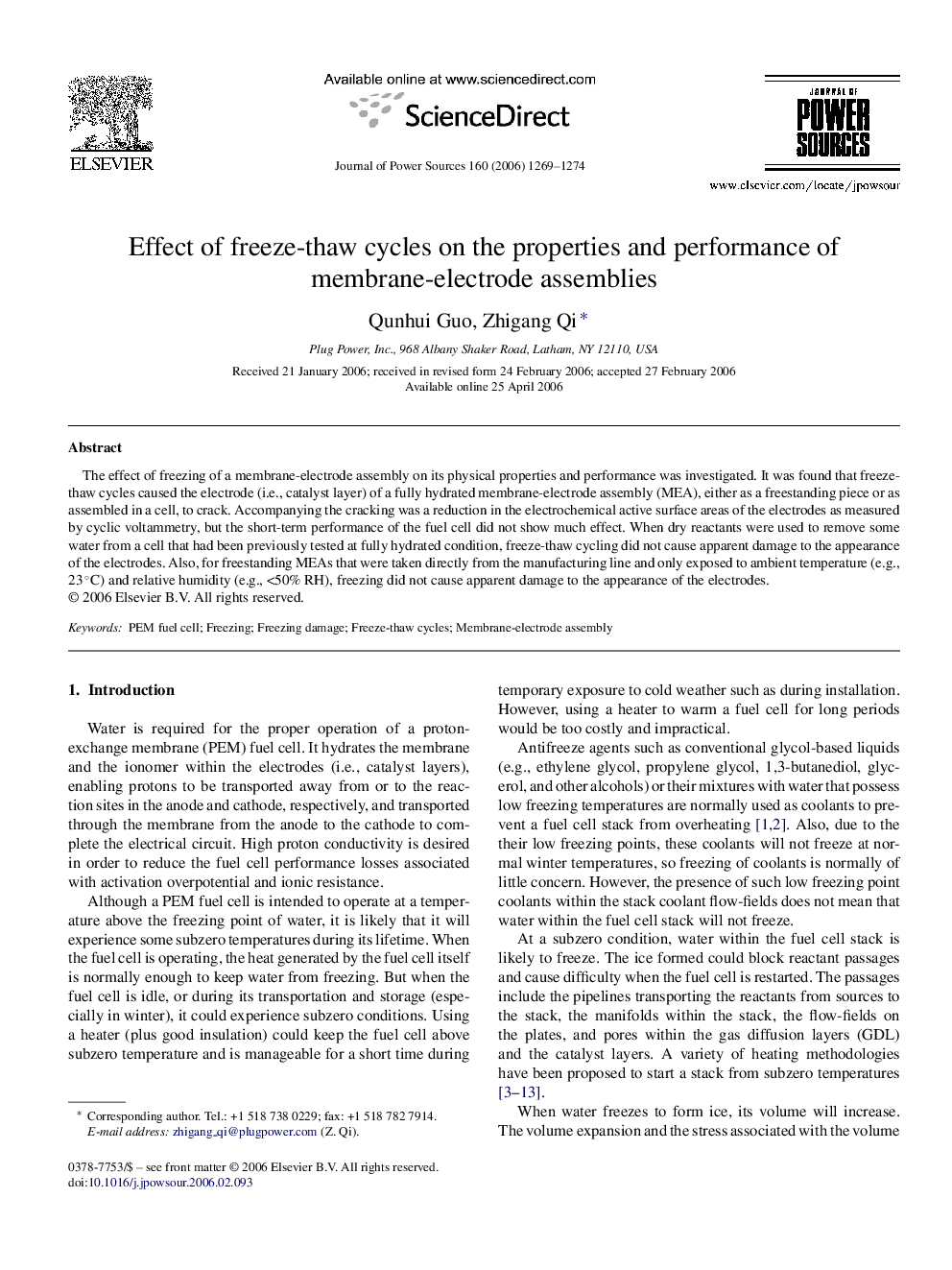| Article ID | Journal | Published Year | Pages | File Type |
|---|---|---|---|---|
| 1287187 | Journal of Power Sources | 2006 | 6 Pages |
The effect of freezing of a membrane-electrode assembly on its physical properties and performance was investigated. It was found that freeze-thaw cycles caused the electrode (i.e., catalyst layer) of a fully hydrated membrane-electrode assembly (MEA), either as a freestanding piece or as assembled in a cell, to crack. Accompanying the cracking was a reduction in the electrochemical active surface areas of the electrodes as measured by cyclic voltammetry, but the short-term performance of the fuel cell did not show much effect. When dry reactants were used to remove some water from a cell that had been previously tested at fully hydrated condition, freeze-thaw cycling did not cause apparent damage to the appearance of the electrodes. Also, for freestanding MEAs that were taken directly from the manufacturing line and only exposed to ambient temperature (e.g., 23 °C) and relative humidity (e.g., <50% RH), freezing did not cause apparent damage to the appearance of the electrodes.
